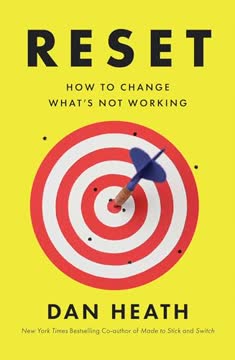重点摘要
1. 拥抱系统性好奇心而非线性目标
系统性好奇心在你成长的能力上提供了不可动摇的确定性,即使前进的确切路径不确定,你也知道自己的行动可以与最真实的抱负相一致。
超越传统目标设定。 传统的目标设定框架,如SMART目标,适用于可预测的环境,但当今世界需要更具适应性的方法。系统性好奇心提供了一种通过关注探索和学习而非僵化目标来应对不确定性的方法。这需要有意识地承诺去居住在已知与未知之间的空间,不是以恐惧,而是以兴趣和开放的心态。
线性目标的缺陷。 线性目标往往激发恐惧,鼓励有害的生产力,并滋生竞争与孤立。它们将抱负与单一目标的追求混为一谈,创造出一种令人沮丧的视角,让我们觉得离成功遥不可及。相反,拥抱那些中间状态,那些新可能性涌现的边界空间。
转变思维方式。 用实验性个人与职业成长模型替代旧的线性成功模型。这个新模型涉及承诺于好奇心,实践有意识的生产力,与不确定性合作,并与世界共同成长。通过拥抱系统性好奇心,你可以将不确定性从逃避的对象转变为探索的领域。
2. 通过去学习认知脚本释放潜力
我们每个人内心都蕴藏着无限的可能性;因此,目标从来不是单一的发现。
打破限制。 认知脚本是支配我们思想和行为的内化模式,可能限制我们对可能性的认知。这些脚本,如续集、迎合大众和史诗脚本,将我们限制在人工边界内,妨碍我们发现真正的潜力。要解锁新的可能性,我们必须去学习这些脚本,重新获得我们的认知自由。
要问的三个问题。 为了避免认知脚本的陷阱,问问自己:
- 你是在追随过去,还是在发现自己的道路?
- 你是在随大流,还是在寻找自己的部落?
- 你是在追随激情,还是在发现好奇心?
成为自我人类学家。 为了逃离旧观念,把自己视为一名人类学家,以自己的生活作为研究主题。通过记录你的洞察、能量水平、情绪和遭遇进行实地考察。利用这些数据来形成假设,设计挑战你假设的实验,打开新的大门。
3. 设计有目的和灵活性的小实验
从线性目标转向实验的美在于,你不必强迫自己的决策符合你曾认为的或想要的自我形象。
契约的力量。 契约是一种简单且可重复的活动,无论每次试验的实际结果如何,它都将不可避免地使你更接近实现真实的抱负。它遵循一个简单的格式:“我将[行动]持续[时间]。”这种承诺机制鼓励行动,并为学习和成长提供框架。
契约的关键特征:
- 有目的:通过学习过程本身提供意义。
- 可操作:在现有资源下可行。
- 持续:简单且可重复。
- 可追踪:易于监测进展。
重复试验。 提前承诺特定时间进行实验,迫使你在做出决定之前等待预先约定的迭代次数。这使你不太可能因为某一特别具有挑战性的一周而放弃你的契约。较短的时间框架通常更有效。
4. 通过尊重时间的真实本质来培养有意识的生产力
拥抱“凯罗斯”意味着放弃泰勒主义的每分钟最大化理想,而是欣赏构成生活的每一刻的独特品质。
超越时间管理。 不要将时间视为一种需要管理的商品,而是拥抱希腊概念“凯罗斯”,强调时间的质量。这涉及到更加专注、参与和敏感于每一刻的独特品质。将焦点从你如何使用时间转向你如何体验每一刻。
管理资源。 有意识的生产力围绕管理你的身体、认知和情感资源展开。这包括:
- 能量:将任务与自然节奏对齐。
- 执行功能:避免多任务处理。
- 情绪:调整压力反应。
凯罗斯仪式。 设计一些小的行为,帮助你打开一个魔法窗口,朝着你想要全力以赴的方向前进。这些仪式可以改变你的情绪,重新连接你的身体,或让你有机会与自己对话。
5. 将拖延从敌人转变为朋友
拖延的问题不在于你懒惰,而在于你射杀了信使。
理解拖延。 拖延不是道德上的失败,而是倾听的失败。它是一个信号,表明某些事情不对劲,头脑、心灵和行动之间存在脱节。与其对抗它,不如将其视为一个有用的指示,探索其潜在原因。
三重检查。 当你拖延时,问问自己:
- 头脑:这个任务合适吗?
- 心灵:这个任务令人兴奋吗?
- 行动:这个任务可行吗?
解决根本原因。 通过识别拖延的根源,你可以采取措施解决潜在问题。这可能涉及重新定义你的策略、重新设计体验,或请求支持或培训。
6. 通过有意的不完美实现可持续卓越
对完美的经典理解假设一个固定状态,在这个状态下没有任何东西可以改进。
完美的神话。 追求完美可能导致倦怠,并阻止我们看到和抓住新的机会。与其追求无法实现的完美,不如拥抱有意的不完美,这意味着在你投入努力的地方保持谨慎。这意味着承认你无法在生活的所有领域始终处于顶尖状态。
调整抱负的旋钮。 要实践有意的不完美:
- 识别完美主义模式。
- 挑战不切实际的目标。
- 选择进步而非完美。
金缮艺术。 像古老的日本金缮艺术一样,接受不完美,庆祝从中涌现的美。这涉及到接受局限,专注于真正重要的事情,并允许创造性的限制。
7. 利用成长循环实现持续进化
就像神话中一样,生活由迷失与重新找到自我的循环构成。
试验与错误。 取得进展需要两个基本要素:试验与错误。循环的试验部分涉及在有限信息下采取行动;这需要愿意走入未知,探索可能性。错误部分则涉及观察结果并根据数据进行调整。
元认知的力量。 元认知,即反思自己学习过程的能力,对于设计成长循环至关重要。这涉及到意识与分析,使你能够综合洞察,欣赏自己走过的路,并确定下一步的重点。
加减下一个。 使用加减下一个工具将元认知融入日常生活。这涉及反思什么有效(加),什么无效(减),以及你计划接下来做什么(下一个)。这个简单的工具可以帮助你识别模式,进行调整,并持续改进。
8. 通过拓宽视角做出明智决策
我们可以像害怕的飞行者一样处理沉重的不确定性,闭上眼睛等待一个无名的飞行员降落飞机——或者我们可以勇敢地探索这个中间空间的可能性。
超越理性思维。 我们的选择受到选项呈现方式的显著影响,而决策可能会受到情感反应的不理性驱动。为了做出更好的决策,练习决策框架,这涉及到扩大你的不确定性范围,明确考虑外部信号和内部信号。
引导表。 使用引导表捕捉外部和内部信号。这涉及问自己:
- 外部信号:你的契约与当前情况如何契合?
- 内部信号:你现在对你的契约感觉如何?
拥抱旅程。 没有正确的选择。只要你不断适应、学习和成长,你就是在赢。
9. 优雅而灵活地应对干扰
最困难的事情是做出行动的决定。
干扰的本质。 干扰在我们期望发生的事情与实际发生的事情之间创造了一个刺耳的差距。为了应对这些挑战,我们必须学会与干扰共舞,拥抱生活固有的不可预测性。
双步重置。 找回立足点是一个双步过程:
- 处理主观体验:标记你的情绪以管理生理反应。
- 管理客观后果:绘制潜在后果并相应采取行动。
积极接受。 与其试图控制你无法改变的事情,不如练习积极接受,这涉及到承认困难的情况并以建设性的方式应对。这使你能够将精力重新引导到更具建设性的行动中,并保持积极的心态。
10. 通过社区和连接解锁社会流动
不要让任何人剥夺你的想象力、创造力或好奇心。
集体好奇心的力量。 虽然个人的好奇心可以产生惊人的成就,但我们的集体好奇心是人类最大创新的动力。对话滋养我们的想象力,而合作使我们能够梦想更大。
社区的好处:
- 汇聚效应:获取集体知识、技能和物质资产。
- 涟漪效应:社区互动中涌现的意外机会和联系。
- 安全效应:情感支持、建议和归属感。
建立好奇心圈。 为了利用集体好奇心,创建一个围绕真诚连接和同伴学习的社区。开始时可以简单直接,不要过于思考,营造舒适的氛围。
11. 通过公开学习和分享来放大成长
最困难的事情是做出行动的决定。
从秘密到透明。 不要在分享一个精心打磨的最终产品之前遮掩你的工作,而是公开记录曲折的过程,包括失误,并邀请其他探索者加入你的旅程。这种激进的透明性使他人能够更快地在你的初步想法上构建,大家共同成长。
公开支柱。 为了在公开中学习:
- 做出承诺:承诺与他人分享你的学习旅程。
- 选择平台:选择一个与你项目性质相符且易于使用的平台。
- 实践和迭代:记录你在过程中学到的东西,并根据反馈调整你的方法。
克服恐惧。 解决阻止你公开学习的恐惧,例如对评判的恐惧、对分心的恐惧,以及对负面影响职业声誉的恐惧。记住,公开学习是分享旅程,而不是假装拥有所有答案。
12. 过一种超越遗产追求的生成性生活
开始实验的冲动会在第二页左右袭来,之后只会愈演愈烈。
从遗产到生成性。 与其关注你留下的东西,不如关注你现在所给予的。生成性是指积极为你的社区做出贡献,为他人创造机会,并以能够促进集体成长的方式分享你的经验。
生成性生活的五个关键:
- 首先做工作:在寻求认可之前创造价值。
- 培养横向根系:扩展你的技能,超越你的主要专业领域。
- 优先考虑影响而非形象:专注于产生积极的影响,而不是建立个人品牌。
- 关闭循环以打开大门:分享你的见解和经验教训。
- 在过程中玩乐:在过程中找到乐趣,拥抱游戏性。
拥抱旅程。 通过采纳这些原则,你可以将职业生涯的曲折转变为生成性的冒险,使你能够与他人共同成长,并对世界产生有意义的影响。
最后更新日期:
FAQ
What's Tiny Experiments about?
- Curiosity Over Goals: Tiny Experiments by Anne-Laure Le Cunff emphasizes the importance of curiosity and an experimental mindset over rigid goal-setting. It encourages exploration and growth in a world focused on linear success.
- Critique of Traditional Goals: The book critiques conventional goal-setting methods, arguing they often lead to anxiety and burnout. Instead, it proposes discovering goals through small, manageable experiments.
- Embracing Uncertainty: It teaches readers to collaborate with uncertainty, turning it into an opportunity rather than a stressor, providing tools for navigating life's unpredictability with adventure.
Why should I read Tiny Experiments?
- Practical Guidance: The book offers actionable advice for those overwhelmed by societal success expectations, providing a refreshing perspective on personal growth.
- Encourages Playfulness: Le Cunff advocates for a playful approach to life, suggesting that experimentation can lead to more fulfilling experiences and joy in the process.
- Addresses Modern Challenges: Particularly relevant in today's fast-paced world, it provides a framework for navigating feelings of being lost or burned out through curiosity and experimentation.
What are the key takeaways of Tiny Experiments?
- Commit to Curiosity: Prioritize curiosity in daily life, leading to new insights and growth opportunities.
- Mindful Productivity: Align tasks with natural energy levels and emotional states to avoid burnout and enhance productivity.
- Intentional Imperfection: Embrace imperfection to foster creativity and resilience, accepting that perfection is unattainable.
How does Tiny Experiments redefine success?
- Nonlinear Growth: Success is a continuous journey of learning and exploration, allowing for organic growth and fulfillment.
- Redefining Ambition: Ambition should focus on personal fulfillment rather than societal expectations, encouraging pursuit of what truly resonates.
- Celebrating Small Wins: Success includes small, incremental achievements, maintaining motivation and a positive outlook.
What is the PACT method in Tiny Experiments?
- Purposeful Actions: The PACT method stands for Purposeful, Actionable, Continuous, and Trackable, focusing on small, meaningful actions.
- Focus on Outputs: Encourages focusing on controllable actions rather than outcomes, reducing anxiety and fostering accomplishment.
- Promotes Experimentation: Designed to promote an experimental mindset, allowing flexibility and adaptation from each experience.
What is the significance of mindful productivity in Tiny Experiments?
- Aligning with Natural Rhythms: Emphasizes working in harmony with natural energy cycles to maximize efficiency and creativity.
- Sequential Focus: Advocates focusing on one task at a time rather than multitasking, enhancing concentration and work quality.
- Emotional Awareness: Encourages recognizing and managing emotional states for better decision-making on time and energy allocation.
How does Tiny Experiments address procrastination?
- Understanding Procrastination: Reframes procrastination as a signal rather than a failure, exploring motivations and barriers.
- The Triple Check: Introduces a method to assess whether procrastination stems from rational, emotional, or practical factors.
- Curiosity Over Guilt: Encourages approaching procrastination with curiosity, leading to constructive actions and self-discovery.
What is the two-step reset method mentioned in Tiny Experiments?
- Labeling Emotions: Involves acknowledging emotions in response to challenges, validating feelings and creating a foundation for progress.
- Assessing Consequences: Evaluates the objective consequences of situations, aiding informed decision-making on responses.
- Promoting Resilience: Helps navigate chaos and uncertainty with clarity and confidence, fostering a resilient mindset.
What is the significance of social flow in Tiny Experiments?
- Enhanced Creativity: Social flow refers to heightened engagement and creativity in group collaboration, leading to innovative ideas.
- Supportive Communities: Emphasizes surrounding oneself with like-minded individuals for emotional support and a sense of belonging.
- Historical Examples: Shares stories of influential groups to demonstrate how collaboration leads to significant creative breakthroughs.
What does Tiny Experiments say about the role of failure?
- Learning from Mistakes: Emphasizes failure as essential for learning, viewing setbacks as growth opportunities.
- Good Mistakes: Introduces "good mistakes," errors prompting reflection and valuable insights, embracing imperfection.
- Resilience Through Experimentation: Encourages an experimental mindset to develop resilience, fostering curiosity despite setbacks.
What are some practical strategies for implementing tiny experiments?
- Start with Small Pacts: Create time-bound commitments to specific actions fostering curiosity, like dedicating time to new activities.
- Reflect on Experiences: Document experiments and reflect on outcomes, using metacognition to learn and adjust approaches.
- Engage with Communities: Join curiosity circles for support and inspiration, enhancing learning and growth through shared experiences.
What are the best quotes from Tiny Experiments and what do they mean?
- “Don’t let anyone rob you of your imagination, your creativity, or your curiosity.”: Emphasizes nurturing innate curiosity and creativity, prioritizing personal exploration over societal expectations.
- “Forget the finish line.”: Encourages focusing on the journey of exploration and discovery rather than a specific destination.
- “Turn doubts into experiments.”: Urges taking action despite uncertainties, framing doubts as experiments to overcome hesitation.
评论
微小实验因其新颖的个人成长与成功方法而备受赞誉。读者们欣赏书中对好奇心、实验精神和拥抱不确定性的强调。许多人发现书中的实用工具和思维转变令人解放,尤其是对于那些感到困惑或疲惫的人来说。尽管一些评论者认为内容熟悉或令人不知所措,但大多数评论者强调其易读性和带来积极生活变化的潜力。书中重新定义成功、打破传统目标设定的理念与许多读者产生了强烈共鸣。
Similar Books














